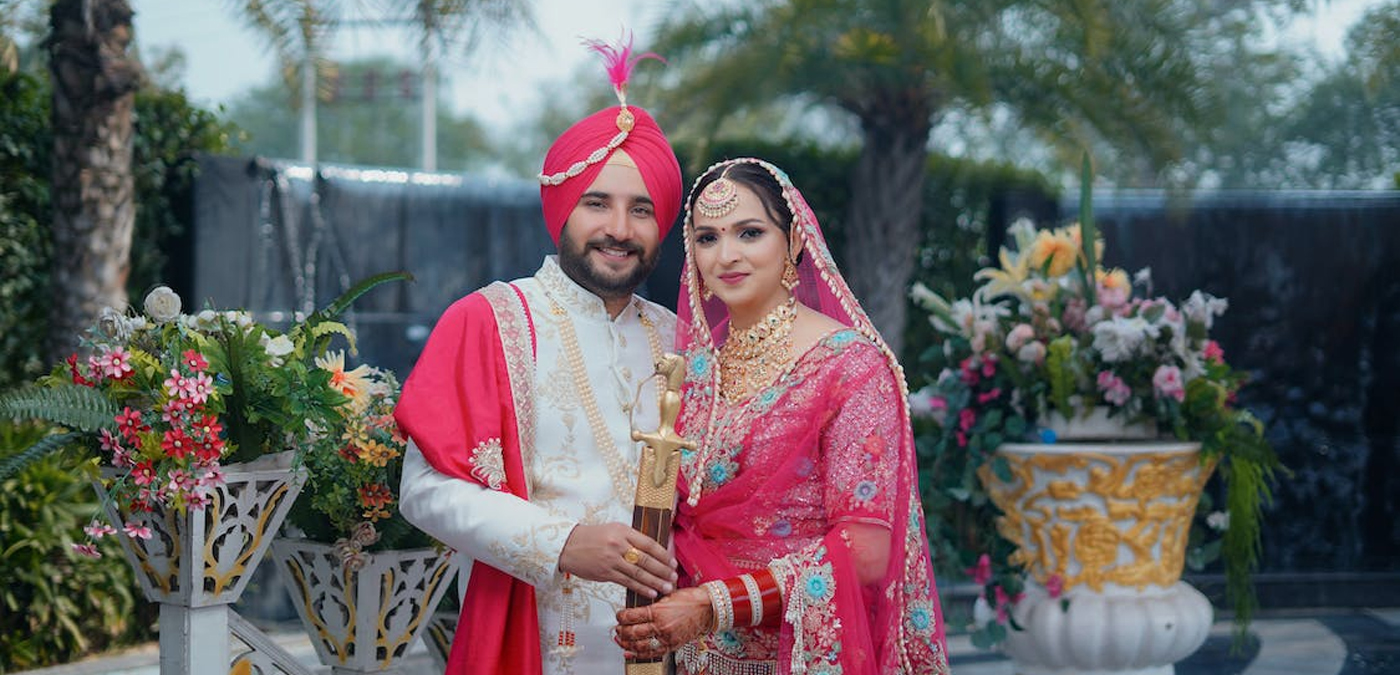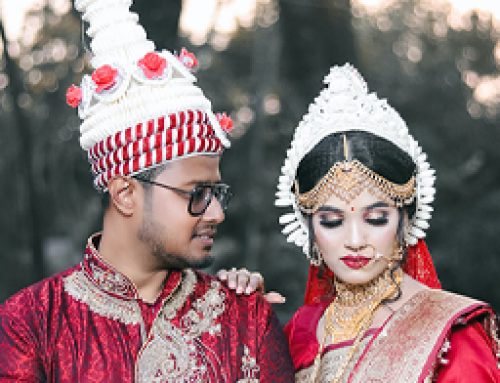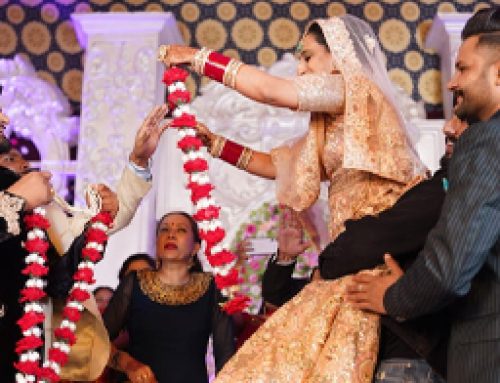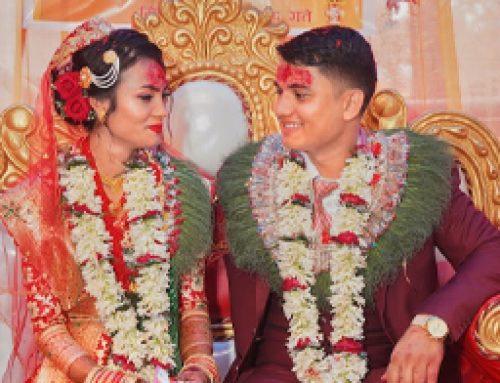Punjabi Wedding Traditions

Roka and Thaka:
The Roka ceremony is the formal announcement of the wedding alliance. It is an intimate gathering where the bride and groom’s families exchange gifts, blessings, and sweets. The Thaka ceremony, which follows the Roka, involves tying a sacred thread (Mauli) around the groom’s wrist as a symbol of protection. It signifies the acceptance of the groom into the bride’s family.
Sagai or Engagement:
The Sagai ceremony marks the official engagement of the couple. The families exchange rings as a symbol of the forthcoming union. It is a joyous occasion where relatives and friends gather to bless the couple and celebrate their commitment.
Mehndi and Sangeet:
The Mehndi and Sangeet ceremonies are vibrant pre-wedding events filled with music, dance, and festivities. The Mehndi ceremony involves applying henna designs on the bride’s hands and feet, as well as on the female guests’ hands. The Sangeet ceremony is an evening of dance and music performances by family and friends, including traditional Bhangra and Giddha dances. Both events are characterized by lively music, colorful attire, and a spirit of celebration.
Chuda and Kalire Ceremony:
The Chuda ceremony takes place on the morning of the wedding day. The bride’s maternal uncle or close relatives tie a set of red and white bangles, known as Chuda, on the bride’s wrists. These bangles are traditionally made of ivory, but modern versions use plastic or metal. The bride’s friends and female relatives also tie small decorative ornaments, known as Kalire, to the Chuda. These Kalire are believed to bring good luck and are an important symbol of a Punjabi bride.
Ghodi and Baraat:
The Ghodi and Baraat procession is a grand and lively affair. The groom arrives at the wedding venue on a beautifully decorated white horse (Ghodi), accompanied by his family and friends in a procession called Baraat. The Baraat includes music, dancing, and singing, creating a festive atmosphere. The groom’s family is welcomed by the bride’s family, and they exchange garlands as a symbol of acceptance and union.
Anand Karaj:
The Anand Karaj is the Sikh wedding ceremony, which takes place in a Gurudwara (Sikh temple). The couple sits in front of the Guru Granth Sahib, the Sikh holy scripture, and the wedding ceremony is officiated by the Granthi (priest). The ceremony involves the reading of hymns, the exchange of vows (Laavan), and the tying of the Sikh wedding knot, called the Anand Karaj knot. The couple walks around the Guru Granth Sahib four times, symbolizing their commitment to each other.
Varmala and Pheras:
In the Varmala ceremony, the bride and groom exchange flower garlands as a sign of their acceptance of each other. The Pheras, also known as Laavan or Lavan, are the wedding vows taken by the couple. They revolve around the sacred fire (Agni) and take four rounds, symbolizing the four stages of married life as per Sikh tradition.
Doli and Vidaai:
The Doli and Vidaai ceremonies mark the bride’s departure from her parental home to her husband’s home. The Vidaai is an emotional moment as the bride bids farewell to her family. She throws handfuls of rice over her shoulder as a symbol of gratitude and prosperity. The bride then sits in a beautifully decorated palanquin (Doli) or car to leave for her new home, accompanied by her family and friends.
Reception:
The wedding festivities conclude with a grand reception. The newly married couple is welcomed by their families and friends. There is music, dance, and a sumptuous feast where guests shower their blessings and good wishes upon the couple.
Punjabi weddings are known for their vivacity and the sense of community celebration they foster. They reflect the rich cultural heritage of Punjab and are filled with music, dance, and rituals that create an atmosphere of joy and unity. These traditions not only bind families together but also showcase the warmth and hospitality that Punjabi culture is renowned for.
Perfect Venue To Plan Your Punjabi Wedding in Melbourne
Seasons5 offers a vibrant atmosphere and Indian wedding venues along with dedicated staff to help you celebrate your Punjabi wedding. Nestled in the lush greenery of Point Cook, Melbourne, we’ve got luxurious accommodations too. Our indoor and outdoor venues make for a picturesque scene for wedding photos.
Crafted with local and fresh ingredients, our Cinnamon Bay Restaurant offers delicious meals for wedding celebrations. You can also enjoy our day spa to relax and rejuvenate. Feel free to call us on 038376 5300 or drop an email at contact@seasons5.com for more information.







